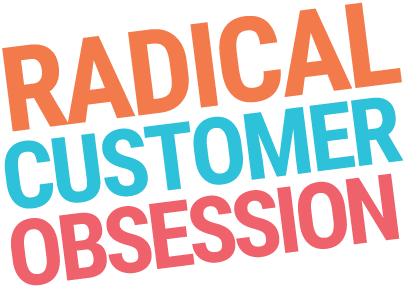
About the Book
The New York Times describes Tim Ferriss as ‘a cross between Jack Welch and a Buddhist Monk.’ For me, he is just a super smart, authentic genius whose endless curiosity on human performance and generosity of spirit make anything he writes worth reading.
Ferriss’s 2007 business self help blockbuster The Four Hour Workweek radically changed my approach to entrepreneurialism. Although I’ve rarely distilled a workweek down to four hours, the 4HWW philosophy has improved my productivity and view on work / life balance. It’s even been partly responsible for some of my crazier lifestyle decisions, like buying a beach house over the phone, sight unseen. (probably a tad reckless at the time but turned out to be one of the best decisions I’ve ever made, both financially and emotionally).
In 2009 a good friend and I were lamenting that we both needed to shed 8 kilos. A few hours and a bottle of red wine later, we had put a serious wager on it – $8,000 to lose 8 kilos in 8 weeks. I figured there was only one way to approach the challenge – scientifically and with laser focus. Ferriss’s Four Hour Body, a result of his obsessive quest — spanning more than a decade — to hack the human body, became my bible. Eight weeks later I was 8.4 kilos lighter and $8,000 richer.
Tools of Titans draws on some of the insights from his Four Hour juggernaughts. But mostly it distills the lessons and wisdom from the guests he’s interviewed for his award-winning podcast, the Tim Ferriss Show, ranked the number one business podcast globally with over 100 million downloads. His guests are some of the smartest people on the planet. They range from champion UFC fighters, navy seals and leading neuroscientists to self help guru Tony Robbins and billionaire investor Chris Sacca. Arnold Schwarzenegger’s tips and tricks for elite physical performance feature throughout he has penned the foreward for the book. Interspersed with interviews are chapters with Ferriss’s own tips, such as tools to sleep, (a 10-minute game of Tetris before bed, sleep masks, a pad that allows the bed temperature to suit different preferences of co-sleeping couples) and an insane amount of productivity tricks and tech tools.
This book is a buffet, Ferriss writes, rather than a sit-down meal. He gives the reader given permission to skip bits, just as well considering some of the advice relates to the fastest way to becoming gymnast-fit, microdosing on LSD to boost your mental performance, fasting techniques and a level of obsessiveness over food that would be unsustainable and unappealing for most of us.
This Book in 200 words …
The primary objective of this book is to identify the common threads in tactics, routines and habits of billionaires, icons and world-class performers. In doing so it outlines a compelling argument for the inherent link between fitness, money and wisdom. In fact the book is organized into three sections — healthy, wealthy and wise — but you’re not long into the book before you realise that they’re far from mutually exclusive. In other words, if you want to be successful in business, it pays to look after your physical and mental health.
Exploring the success strategies of people as different as Silicon Valley legend Mark Andreessen and Dilbert comic creator Scott Adams, you realise that their approaches to life, productivity and success aren’t that different. They’ve created systems and formulas that enable them to achieve at elite levels, whether its in tech innovation or comic creation.
What makes Tools of Titans different from other compilations of profiles on successful people is that it goes deep into what these individuals actually do rather than what they simply think and believe.
As Ferriss says, ‘If more information was the answer, we’d all be billionaires with perfect abs. It’s not what you know, it’s what you do consistently.’
Tools of Titans invites you to be more conscious of what contributes to performance and what’s possible when we treat life like a series of experiments. It’s filled with powerful quotes but is much more than a bunch of motivational mantras. It outlines the actual routines and resources uber successful people call on to reach peak performance.
Top Take-Aways and To-Do’s from Tools of Titans
There is so much gold in this book that you risk producing your own small novel of to-do’s, extra reading and shopping lists as a result of reading it (says the person who found herself buying a acupuncture mat on amazon at midnight one night after reading chapter seven). But here, I’ve attempted to distill the key takeaways (certainly the insights that have resonated most with me).
1. Own your day. Much of the book is dedicated to morning routines as Ferriss believes that ‘when you win the morning, you win the day.’ And after interviewing more than 100 people about morning routines, Ferriss outlines a simple 5-step morning ritual that I tried for 30 days. Although it’s comprised of things that seem small and relatively insignificant, I was amazed at the impact it had on my productivity, mindset and mood.
- Make your bed – sounds ridiculous but it sets you up for getting shit done. Try it.
- Meditate for 10-20 minutes. At least 80% of the guests profiled in the book have a daily mindfulness practice of some type. Not a coincidence.
- Do 5-10 reps of something for just 60 seconds. This engages your nervous system, elevates your mood and quietens your mental chatter.
- Drink a cup of tea with turmeric and ginger. If you follow this to the letter you’ll add coconut oil and MCT Oil Powder, but I’m good with just the tea.
- 5-10 minutes of journaling. This practice, particularly if you’re a writer, speaker or creative, is powerful. Ferriss encourages you to answer three questions in this process: What am I grateful for, what would make today great and what are my daily affirmations?
Like I said, it sounds simple but commit to it for 30 days and see the difference.
2. If you want great mentors, you have to become a great mentee. Focusing on and finding ways to help, serve and add value will attract better people around you.
3. Find a routine that delivers you the best possible sleep. The quality of your sleep impacts nearly every area of your life. Guided meditation before bed has significantly improved my quality of sleep and enabled me to control my ‘monkey mind’.
4. Try a new life or body hack once a week. For me, foam rolling to improve muscle recovery after running, dry needling and a regular sauna have made the biggest difference.
5. Focus on systems rather than goals. We are what we do repeatedly, so rather than asking yourself ‘what short term goal can I achieve’, try ‘what persistent skills or relationships can I develop.’
For me, this shift from being purely goal orientate to creating daily rituals that impact outcomes has been the biggest game changer. That, and the acupuncture mat 😉
You can get your copy here



